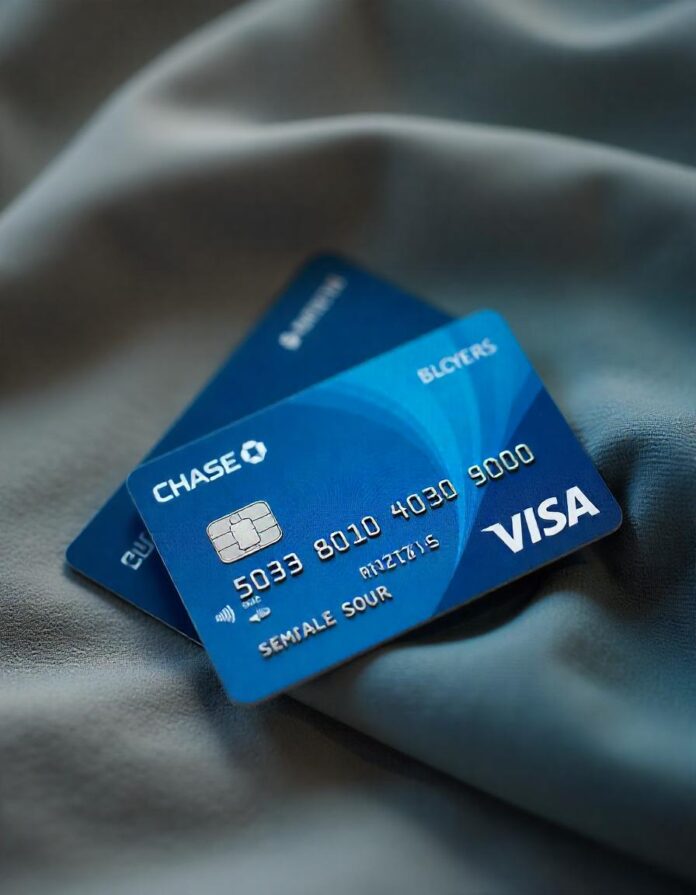In this article, we’ll explore the best Chase credit cards for bad credit, provide tips on how to rebuild your credit, and offer expert advice on how to manage your finances effectively. Are you struggling with bad credit and finding it challenging to get approved for a credit card? You’re not alone. Millions of Americans face similar challenges, but there is hope.
Understanding Bad Credit
Before we dive into the world of Chase credit cards for bad credit, it’s essential to understand what bad credit means. Bad credit is typically defined as a credit score below 600. This can be caused by a variety of factors, including:
- Late payments: Missing payments or making late payments can negatively impact your credit score.
- High credit utilization: Using too much of your available credit can harm your credit score.
- Credit inquiries: Applying for too many credit cards or loans can negatively impact your credit score.
- Bankruptcies: Filing for bankruptcy can significantly lower your credit score.
Chase Credit Cards for Bad Credit
While Chase is known for its strict credit requirements, there are some credit cards that may be more accessible to individuals with bad credit. Here are some of the best Chase credit cards for bad credit:
- Chase Secured Credit Card: This credit card requires a security deposit, which becomes your credit limit. It’s an excellent option for those who are rebuilding their credit.
- Chase Freedom Unlimited Credit Card: This credit card offers a competitive interest rate and rewards program, making it an excellent option for those with fair credit.
- Chase Slate Edge Credit Card: This credit card offers a low interest rate and no annual fee, making it an excellent option for those who are rebuilding their credit.
How to Rebuild Your Credit
Rebuilding your credit requires time, effort, and patience. Here are some tips to help you get started:
- Make on-time payments: Payment history accounts for 35% of your credit score, so making on-time payments is crucial.
- Keep credit utilization low: Keep your credit utilization ratio below 30% to show lenders you can manage your debt responsibly.
- Monitor your credit report: Check your credit report regularly to ensure it’s accurate and up-to-date.
- Avoid new credit inquiries: Avoid applying for multiple credit cards or loans in a short period, as this can negatively impact your credit score.
Tips for Managing Your Finances Effectively
Managing your finances effectively requires discipline, patience, and the right tools. Here are some tips to help you get started:
- Create a budget: Create a budget that accounts for all your income and expenses.
- Prioritize needs over wants: Prioritize essential expenses over discretionary expenses.
- Use the 50/30/20 rule: Allocate 50% of your income towards essential expenses, 30% towards discretionary expenses, and 20% towards saving and debt repayment.
Benefits
Chase credit cards offer a range of benefits, including:
- Rewards programs: Earn points or cashback on your purchases.
- Travel benefits: Enjoy travel-related perks, such as airport lounge access and travel insurance.
- Purchase protection: Get protection on your purchases, including return protection and purchase protection.
Chase Credit Card Fees
While Chase credit cards offer a range of benefits, they also come with some fees. Here are some of the fees you can expect to pay:
- Annual fee: Some Chase credit cards come with an annual fee, which can range from $25 to $500.
- Interest rate– If you don’t pay your balance in full each month, you’ll be charged interest on your outstanding balance.
- Late payment fee– If you miss a payment, you’ll be charged a late payment fee.
How to Apply for a Chase Credit Card
Applying for a Chase credit card is a straightforward process. Here’s how to do it:
- Visit the Chase website: Go to the [Chase website]((link unavailable)) and click on the “Credit Cards” tab.
- Choose a credit card: Select the credit card you’re interested in and click on the “Apply Now” button.
- Fill out the application: Fill out the online application, which will require you to provide personal and financial information.
Chase Credit Card Customer Service
Chase offers excellent customer service, including:
- Phone support: Call Chase customer service at 1-800-432-3117 to speak with a representative.
- Email support: Email Chase customer service at customer.service@chase.com to get help with your account.
- Online chat: Chat with a Chase representative online to get help with your account.
Conclusion
Rebuilding your credit and managing your finances effectively requires time, effort, and patience. By understanding the best Chase credit cards for bad credit, tips for rebuilding your credit, and expert advice on managing your finances, you can take the first steps towards achieving financial stability.
Frequently Asked Questions
- What is the best Chase credit card for bad credit?-The best Chase credit card for bad credit is the Chase Secured Credit Card. Which requires a security deposit and offers a competitive interest rate.
- How can I rebuild my credit?: You can rebuild your credit by making on-time payments, keeping credit utilization low, monitoring your credit report, and avoiding new credit inquiries.
- What is the interest rate on Chase credit cards?: The interest rate on Chase credit cards varies depending on the card and your creditworthiness, but typically ranges from 15.99% to 25.99%.
Additional Resources
- Chase Website: Visit the [Chase website]((link unavailable)) to learn more about their credit cards and banking services.
- Credit Karma: Visit the [Credit Karma website]((link unavailable)) to check your credit score and report for free.
- Federal Trade Commission


